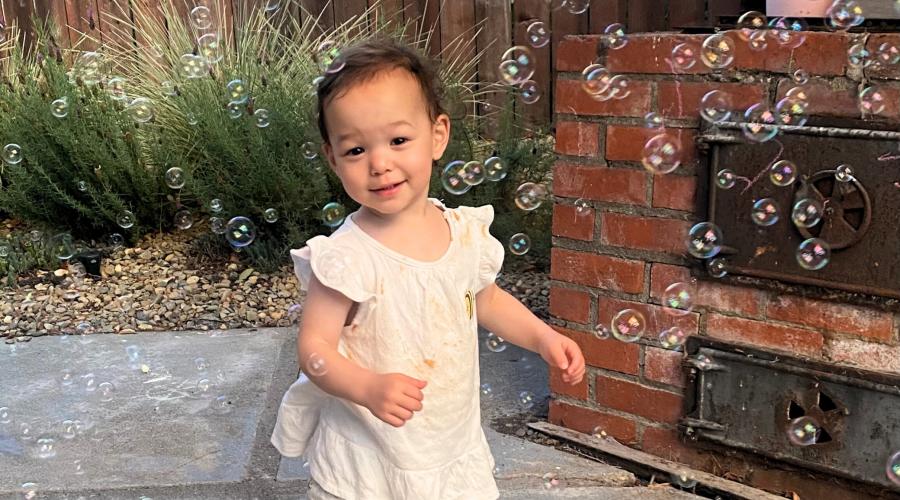
UCSF Partners with Families to Help Preterm Infants Thrive
When Niko was born at just 23 weeks, her mother, Jillian Salazar, felt a sense of helplessness. "When I saw my premature baby hooked up to machines and in such a fragile state, I felt powerless to protect her," she recalls. "Not being a medical professional, I didn't understand what I could possibly offer."
At the Intensive Care Nursery (ICN) in UCSF Benioff Children’s Hospital San Francisco, the team immediately reframed that feeling, positioning Jillian not as a visitor but as an essential partner in her daughter's healing.
A UCSF Model for Neonatal Care
This family partnership approach is the heart of the ROOTS (Realizing Optimal Outcomes for our Tiniest Patients) Program, an initiative from the UCSF Department of Pediatrics designed to change the trajectory for extremely preterm infants.

Program director and neonatologist, Elizabeth Rogers, MD, believes that its supportive culture and environment of care helped UCSF Benioff Children’s Hospitals receive a #6 ranking in the nation for neonatology.
"Survival after preterm birth has improved, but not the neurodevelopmental outcomes of infants born preterm," says Rogers. "We needed an innovative approach. The ROOTS program was created to combine our research-driven best practices with a new model of family-partnered, neuroprotective care to ensure these babies go home thriving."
Giving Families the Power to Heal
Salazar saw the program’s core principle of family partnership within 24 hours of her daughter’s birth.
"I was encouraged to do skin-to-skin contact," she remembers. "But I had learned the first 72 hours were critical for preventing brain hemorrhages and that she needed to be treated with extreme care. I was terrified of hurting her. However, every person on Niko's team emphasized that skin-to-skin contact was the most healing thing for her."
The encouragement wasn't an empty gesture for comfort; it was a core medical intervention. "One of the most evidence-based practices in neonatology is not anything technologically-dependent, but truly basic skin-to-skin therapy," says Rogers. "It's an intervention that only family can provide, and it has a myriad of benefits. We work to build confidence so even unstable, ventilated infants can receive this healing touch."
Salazar quickly learned how essential their role really was. "The neonatologists explained to me that the things Niko needed most, only my husband and I could give her: skin-to-skin contact, healing breast milk, talking and singing, and interacting with us day after day," Salazar says. "We were always made to feel like the central members of Niko's team."
Recreating the Womb
A neuroprotective, developmentally supportive environment is a defining feature of the ROOTS program’s dedicated unit within the ICN, known as the Grove. It’s engineered to mimic the womb, with low lights, minimal noise, and "clustered care" — grouping procedures to give infants long, uninterrupted periods of sleep critical for brain growth.
“During this fragile period, too much stimulation or any unnecessary medical intervention can impact normal brain development,” says Rogers. “We consider every blood test thoughtfully to make sure the result is clinically actionable and that we’re not adding unnecessary, harmful stress.”

The Proof: A Thriving Toddler
For Niko’s family, UCSF’s dual approach of empowering families and minimizing harm has helped them find a future they cherish.
"I am certain that UCSF is responsible for my daughter's remarkable success," Salazar says. "Niko never ceases to amaze people when they learn just how prematurely she was born. Today, she is a happy, healthy, silly, determined, whip-smart, loving toddler. She keeps up physically and developmentally with other children her age."
This is the future Rogers and her team are working for. "Instead of hoping for a silver bullet to improve neurodevelopment in preterm infants, we need to think broadly about the culture of the unit, family partnerships, and how to best implement evidence-based neuroprotective care. That’s how we’re moving the needle for preterm infants and their families.”
Niko's story shows how the UCSF Division of Neonatology empowers families and helps the most fragile infants not just survive, but thrive.
